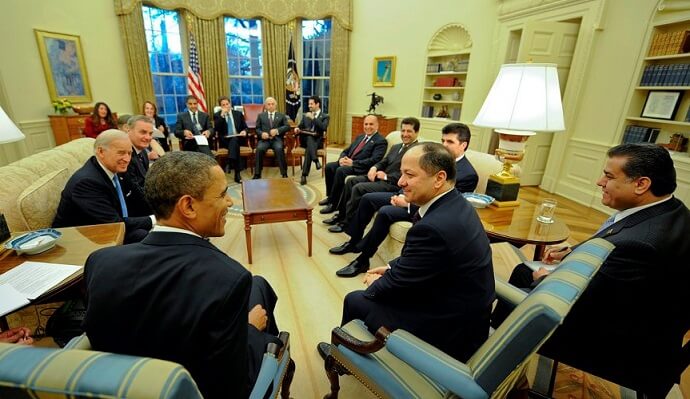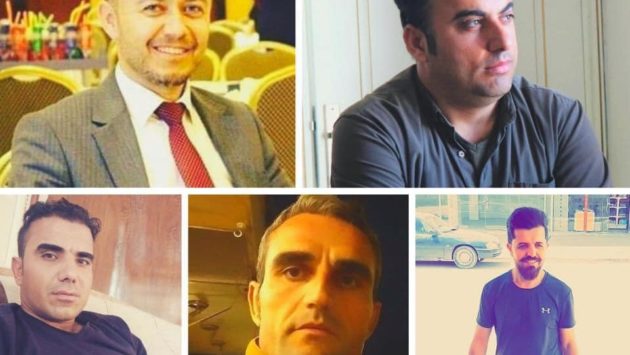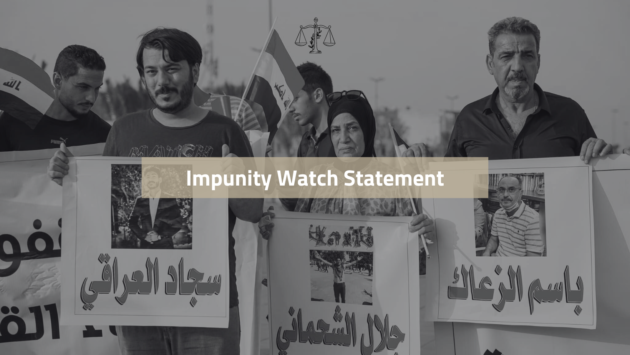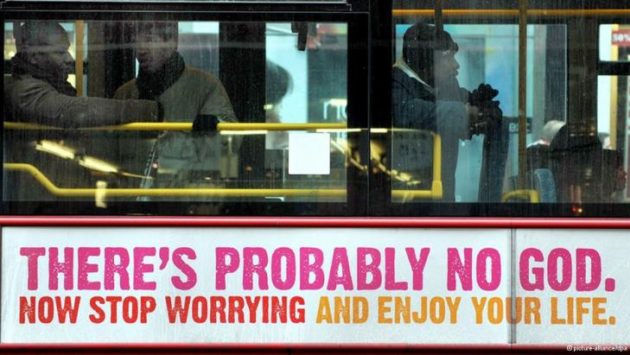US Must Back Kurdistan Region’s Democratic Institutions, Not An Illegal President
Source: Pasewan
On Monday 12 October, 2015, security forces of the Kurdistan Democratic Party (KDP) prevented Dr. Yousef Mohammad, the Speaker of the Kurdistan National Assembly, from entering the capital city of Erbil (Hawler) to carry out his legislative duties and oversee a session of the parliament due to be held that day. At the same time, the Kurdistan Regional Government (KRG) prime minister, Nechirvan Barzani, sacked four ministers from the coalition government cabinet. They, and the speaker, are all members of the Gorran party. The KDP claims it took this action because Gorran was behind protests against the Kurdistan Regional Government (KRG) — in particular, against the KDP as the largest party in the coalition — which gripped several cities earlier this month, and in which four civilians were shot dead by KDP security forces, dozens were injured, and several KDP offices were set on fire, causing the death of a 13 year old boy. Gorran has rejected this accusation, insisting it did not organise the protests and blaming the KDP for the governmental failures, including endemic corrruption and four-month delays in salary payments to teachers and civil servants, which have stoked public discontent.
On 23 October, Gorran MP Hoshyar Abdullah went further, telling a press conference that his party has evidence that the KDP instigated the burning of its own buildings during the unrest. He accused the KDP of infiltrating its members among genuine demonstrators so as to incite violence and discredit the protests. KNN TV has released footage of KDP guards opening fire on crowds in Kalar, killing two people, one of them a KDP activist. The KDP has denied the allegations.
What is beyond question is that the KDP used its militia to stymie the functioning of parliament and, as the Speaker has stated in an interview with The Pasewan, this amounts to a political coup. Such disruption of parliament is illegal according to the Kurdistan Region’s law and Iraq’s permanent constitution.
Neither the Kurdistan Parliament nor the KRG Cabinet have met since 12 October. The elected Speaker is still barred from Erbil, the seat of the parliament. Gorran’s entire parliamentary staff have also been banned from the capital. The four dismissed ministers were not replaced until yesterday. The KDP had tried to persuade the Patriotic Union of Kurdistan (PUK) and the Kurdistan Islamic Union (KIU) to share the posts between them but they rightly refused, insisting the KDP has no right to exclude Gorran, the second largest party in parliament, from the political process. One of the vacant posts was for the Minister of the Peshmarga (Kurdish military forces) which — in the middle of an existential fight with Daesh (ISIS) — reveals the depth of the political crisis and the fact that the KRG is not really running the Kurdistan Region.
The KDP has now replaced the four ministers with its own people. This is illegal because those appointments must be approved by parliament which cannot operate while the Speaker is prevented from conducting his legislative duties. When the parliament can operate again, the new ministers are unlikely to get enough votes to legitimise their positions.
As well as moving against Gorran, the KDP has also closed down two major TV stations, NRT (Nalia Radio & TV) and KNN (Kurdish News Network), in Erbil and Duhok cities. This suppression of independent broadcasting in areas the KDP controls is a violation of fundamental democratic principles. In truth, the Kurdistan Region is not currently a functioning democracy.
The KDP carried out this coup because of the deadlock in negotiations over the Kurdistan presidency and its fear that parliament would prevent Massud Barzani from retaining his post illegally. Barzani’s legal term as president ended on August 19, 2015 after 10 years, during which he was elected for two four-year terms (between 2005 and 2013) and granted a two-year extension by parliament on June 30, 2013. The terms of this extension were that he would not be able to stand again. However, he is still in power and unwilling to leave office; KDP officials are demanding another two-year extension and they have effectively shut down parliament to protect Barzani’s position.
The deadlock was due to the KDP’s consistent refusal to compromise. There are five main parties in the parliament and all of them except the KDP had submitted resolutions on the presidency issue. These four proposals were eventually merged into a single motion to abolish the presidential law of 2005 and establish a clearly parliamentary system in which the president, with more limited powers, is elected by parliament. The motion got its first reading on 23 June with 57 out of 111 MPs present. The KDP boycotted the session and has not put forward any alternative other than its unyielding demand that Barzani stays in power. There were also several behind-closed-doors talks between the party politburos but these led nowhere and, of course, the elected parliament is ultimately the place to decide so important a matter. On 10 and 11 August the KDP deployed armoured vehicles around the parliament and centre of Erbil in an intimidatory show of strength. On 23 August parliament met again but this time, according to our sources, the KDP managed to bribe several deputies, who, against expectations, abstained and prevented further discussion of the motion. However, it remains on the table, awaiting further debate and a decision, and arguably that’s the main reason why the KDP’s militia barred the Speaker on 12 October.
The other parties are calling for further talks to break the deadlock but the KDP is refusing to meet with Gorran, and is clearly responsible for escalating a crisis which threatens to destroy the achievements of the last two decades and split the Kurdistan Region in two, along 1990s civil war lines. To prevent a total security collapse in this time of war, the capital of Erbil must be freed from the hegemony of forces loyal to one political party. This can only be done through a return to democratic legitimacy, by restoring the parliament’s legitimate role to deal with the legal and economic crisis.
Currently the Kurdistan Region has neither a legitimate president, nor a functional government, nor a parliament to carry out its duties. These events are taking place at a time when a majority of the people — because of the mismanagement of oil resources, collapse of the market, salary delays and war against the terrorists — are living in dire, worsening conditions.
This is all in stark contrast to the international community’s expectations. For many years the KRG promoted itself as a model in the Middle East. Alas, today it is becoming more like Syria, Yemen, Somalia and Libya. A solution can only come from within, without external partisan interference in favour of one party or leader or another. However, the world’s democratic powers can play a crucial positive role by unequivocally supporting the rule of law and democratic institutions in the Kurdistan Region and therefore pressuring Massud Barzani and his KDP to rein in their gunmen, end the use of abuse of democratic norms and allow the parliament to meet and operate freely.
The United States especially has a moral obligation to the Kurdish people to support their enduring struggle to achieve a democratic form of government and a civil political system rather than the monopoly of power by a single group and party. “But the law is the law, and no person is above the law, not even the president, ” said President Obama recently. He was mocking the the ‘president for life’ phenomenom in Africa and should not turn a blind eye to similar developments in Kurdistan. 4,486 US servicemen gave their lives in Iraq to help overthrow one dictator; it would be a cruel abuse of their sacrifice to countenance the rise of another one. The slide towards dictatorship threatens to further destabilise the world’s most volatile region and also ultimately imperils US and Western oil and other interests in Kurdistan.
The Kurdish people deserve good governance and political stability, and our past and current history teaches us a lot concerning this matter. The United States is well regarded and respected by the Kurdish people for your support and protection on several occasions such as in 1992, 2003, and now. We continue to count on your support and cooperation in building democratic institutions and a transparent government. Your voice and stand on this issue is highly valued and urgently needed.
As Albert Einstein once said: “The world will not be destroyed by those who do evil, but by those who watch them without doing anything.”





